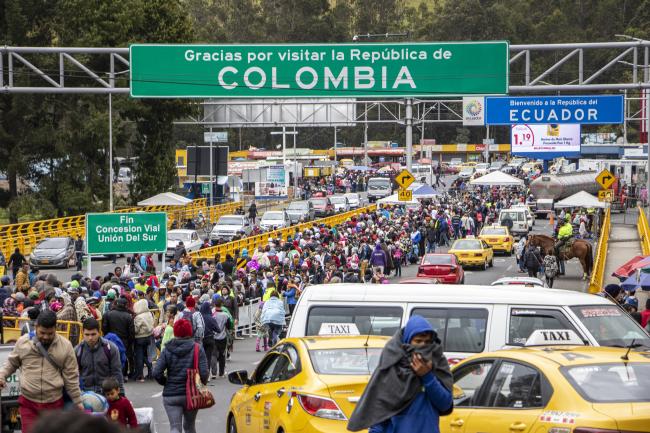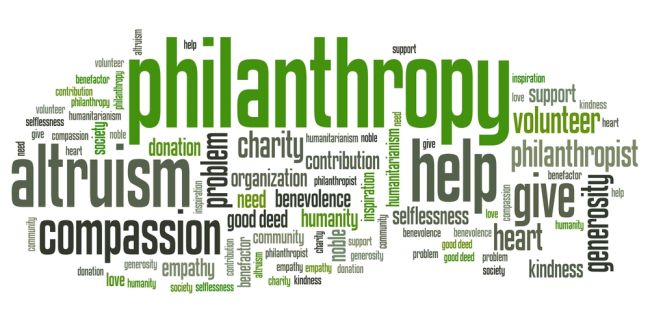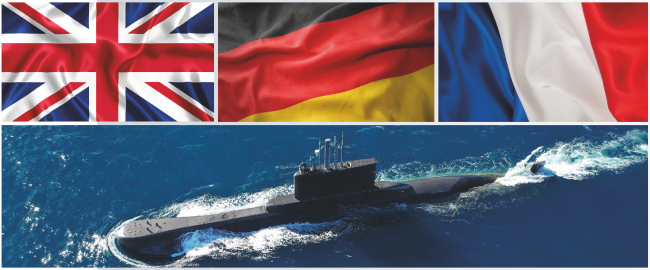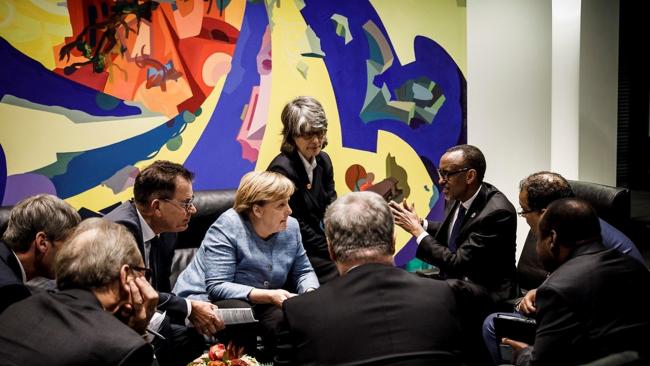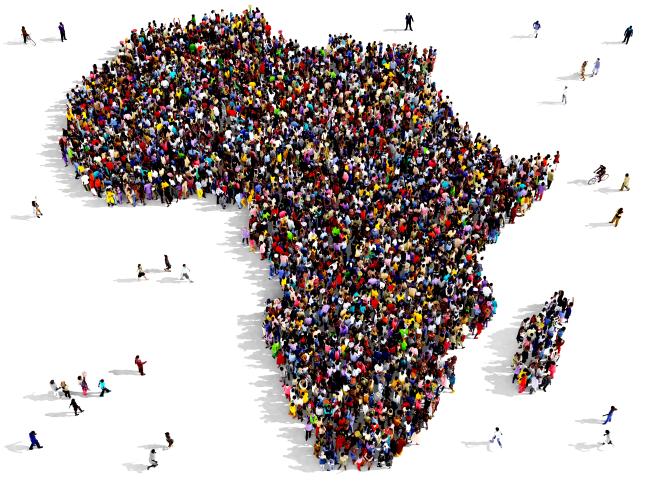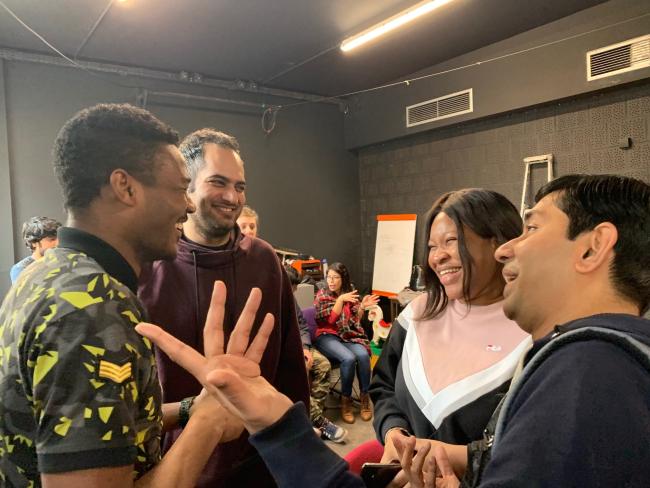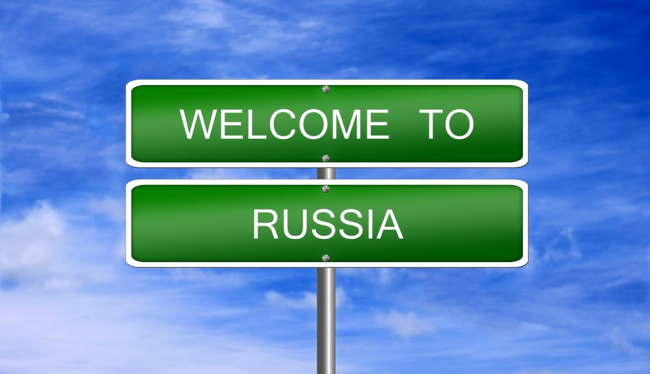Governance and Societies
States remain essential pillars of the international system, even if they are not the only players. Governance is a local, national and international issue.
Related Subjects

Displaced Venezuelans in Latin America: A Test of Regional Solidarity?
Since 2015, South American countries have been dealing with the greatest forced displacement in their history. More than 5.6 million Venezuelans have left their country under great hardships, fleeing deteriorating living conditions, famine, and lack of access to medical treatment and basic care. Eighty per cent of these people have gone to other South American countries, such as Colombia, Peru, Ecuador, or Chile.
Philanthropy and Migration in Europe: What Role for Foundations?
The 2015 “crisis” accelerated and/or intensified the involvement of foundations (in particular those from the private sector) in the field of migration. The crisis not only created a sense of urgency, but also generated a movement of public empathy that foundations were willing to accompany and amplify. It was also seen as a challenge to Europe and its humanist values, which foundations sought to defend in accordance with their own beliefs in inclusive societies.
The Dilemma of Middle Powers: How AUKUS Has Reshaped the Potential for E3 Cooperation in the Indo-Pacific
The Indo-Pacific region is increasingly becoming the center of gravity of economy and geopolitics. It covers 60% of the world’s population, triggers 30% of international trade and drains 60% of global gross domestic product (GDP).
Germany’s Africa Politics: Renewal of an Unequal Cooperation?
In recent years, Germany’s Africa politics have been characterized by proactive international initiatives and the claim for a "partnership at eye level". However, a look at the power constellations of its cooperation indicates that inequalities are – contrary to Germany’s own claims – rather reproduced than reduced.
Towards Geopolitical German Development Cooperation? Recent History, Current Trends, and Future Prospects
German development cooperation (GDC) in a post-Merkel era can be expected to become more geopolitical. Recently adopted German policy documents like the Indo-Pacific guidelines as well as the support to the geopolitical ambition of the European Commission suggest such a tendency for future German policy making.
European asylum and immigration policy: what role for the Franco-German couple?
EU policy on migration and asylum is being built for the last 20 years. But this process is today on hold although France and Germany support the same position on this matter. However, the “migration crisis” in 2015 highlighted the weakness of the Franco-German alliance and the extend to which France’s support to Germany was timid although Germany was facing an extraordinary circumstances.
The African Union’s Migration Agenda: An Alternative to European Priorities in Africa?
While migration from Africa is the priority of European policies for the control of the European Union’s external borders, African migration dynamics are above all regional. Sub-Saharan migration is poorly connected to transcontinental flows: more than 70% remain in Africa.
How the French Understand Immigrant Integration and Citizenship
On December 9, 2020 will be celebrated the 115th anniversary of the 1905 law on French secularism (laïcité). On the very same day, a new law project will be presented by the French government, with the objective of further strengthening the “republican values” in order to fight against so-called “Islamist separatism” within French society.
Migrant and Refugee Participation: Approaches to Rethinking Integration Policies
In France, people participating in policies and programs that affect them is not a new concept. It has been widely studied in the field of social work and the fight against poverty, and is at the heart of many experiments. How can this concept of participation, as is outlined for people experiencing poverty, be applied to refugees and migrants? Does the participation of refugees and migrants present specific characteristics?

Safe and Legal Pathways for Refugees: Can Europe Take Global Leadership?
More than 70 million people were forcibly displaced at the end of 2018. In that context, more safe and legal pathways to countries of asylum is a crucial challenge for the international protection regime. A toolkit is available to States and UNHCR, more particularly refugee resettlement.
Russia’s Immigration Policy: New Challenges and Tools
A new stage in the development of Russia's migration policy is upon us. Since 2010, legal amendments and the Concept of Migration Policy of the Russian Federation to 2025, adopted in June 2012, marked a clear change in how migration flows are regulated, the aim being now to maximise the economic benefit of labour migration.
The Changing Face of Migration Flows
Migration continues to be an integral part of the political landscape in several European capitals, especially at a time when national or local elections are approaching. Nearly all EU member states are under pressure in one way or another from external challenges, but some are under constant pressure from migration flows.
Migration Flows and Policies: India at a Turning Point
India hosts millions of economic migrants from neighboring countries, especially Nepal and Bangladesh. It is also a haven for large refugee communities from Tibet or Sri Lanka. In the past years, India’s dynamic economic growth has brought in new types of migrants: young European graduates, entrepreneurs and highly skilled Indian migrants returning home.
Are Europe's Migration Funds Adequate to Meet Growing Challenges?
Europe’s history books have always identified the Mediterranean as a bridge between different civilisations and cultures. Scholars, such as Fernand Braudel, have portrayed the Mediterranean as the bedrock of Western culture from which dialogue, mutual understanding and trade have been promoted since the very origins of our civilisation.
Emerging Markets and Migration Policy: China
China’s development has given rise to massive flows of both domestic migration and international emigration.
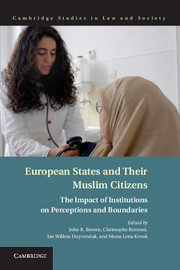
European States and their Muslim Citizens
Temporary Workers or Permanent Migrants? The Kafala System and Contestations over Residency in the Arab Gulf States
The Arab Gulf is the third largest receiving region for global migrants (after North America and the European Union). The six states of the Gulf Corporation Council (GCC) are the richest Arab economies, boast some of the highest GDP per capita rankings in the world, and they all depend upon guest workers in virtually every economic sector. Guest workers have played an integral role in the Gulf since the 1970s, supplying the skills and manpower needed to implement ambitious development plans.
Linking Business and Migration Policy in the USA
On Friday, the 13th of January, 2012, the Center for Migrations and Citizenship welcomed Jesus 'Chuy' Garcia - Cook County Commissioner, Chicago (USA) - as a speaker of its international conference "Business and the State: Migration Policies, Diversity and Integration".
Racial integration - Lessons from the U.S. Army
On Friday, the 13th of January, 2012, the Center for Migrations and Citizenship welcomed 3-star U.S. Army General Bostick as a speaker of its international conference: "Business and the State: Migration Policies, Diversity and Integration".

European Task Force on Irregular Migrations - Country Report: Spain
Spain represents in many ways an exceptional case study for research on immigration and especially irregular immigration.
Support independent French research
Ifri, a foundation recognized as being of public utility, relies largely on private donors – companies and individuals – to guarantee its sustainability and intellectual independence. Through their funding, donors help maintain the Institute's position among the world's leading think tanks. By benefiting from an internationally recognized network and expertise, donors refine their understanding of geopolitical risk and its consequences on global politics and the economy. In 2025, Ifri supports more than 80 French and foreign companies and organizations.








